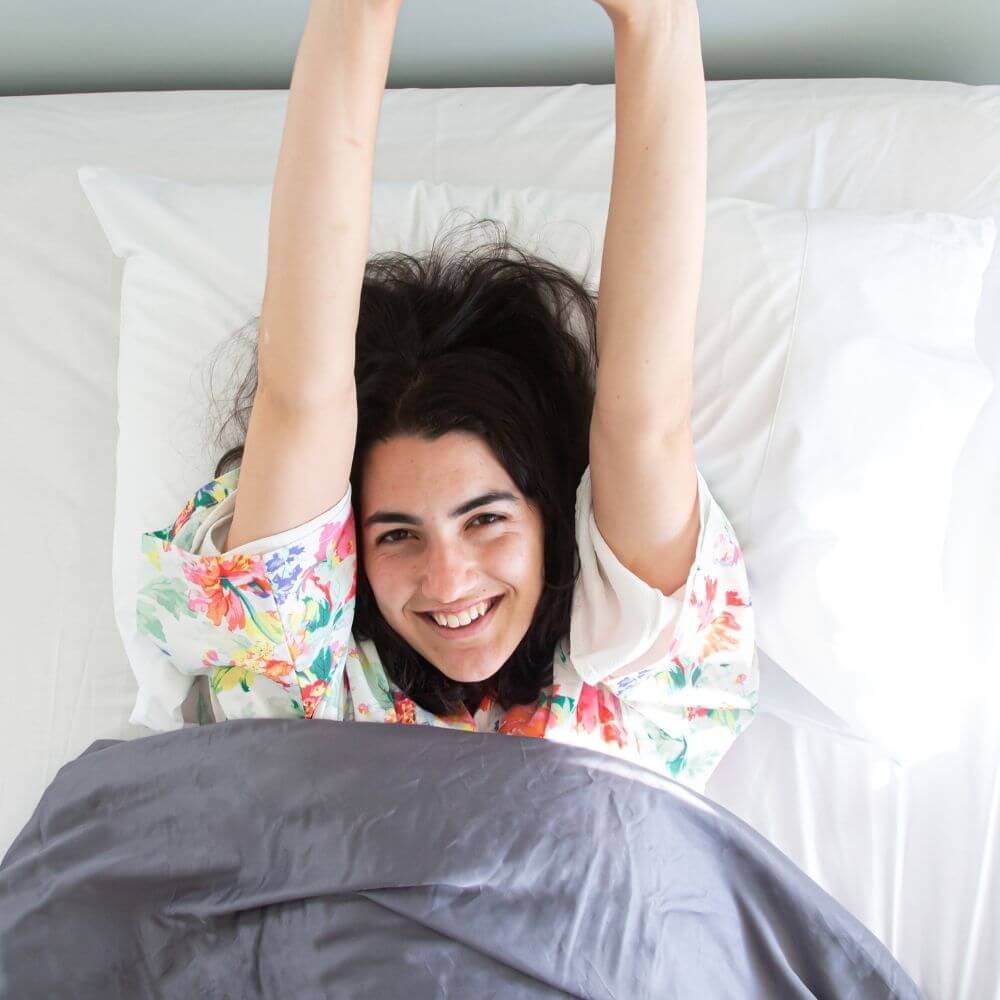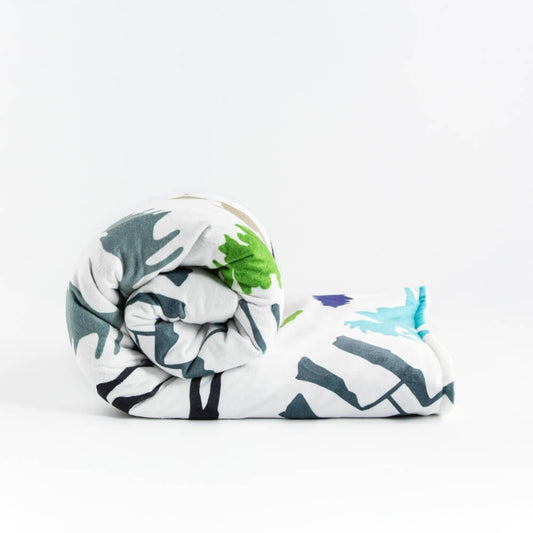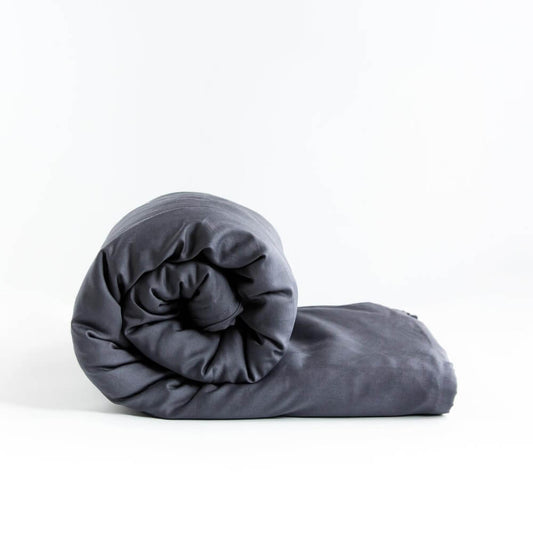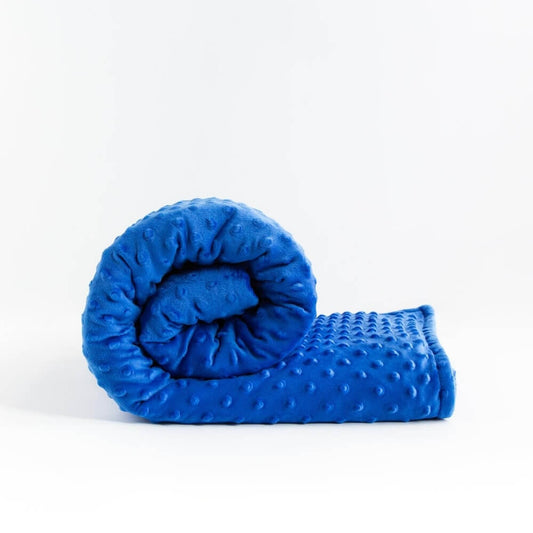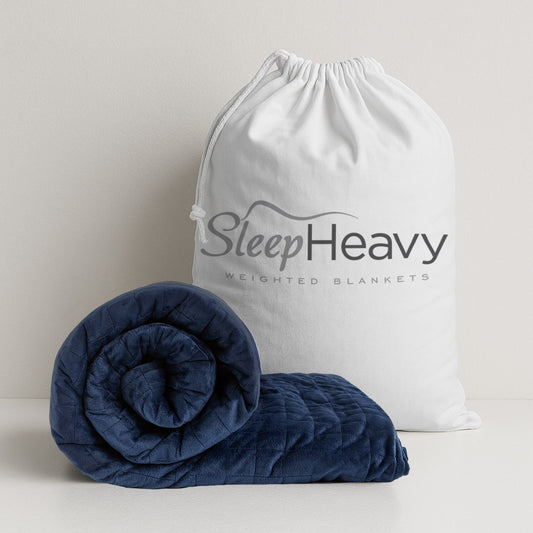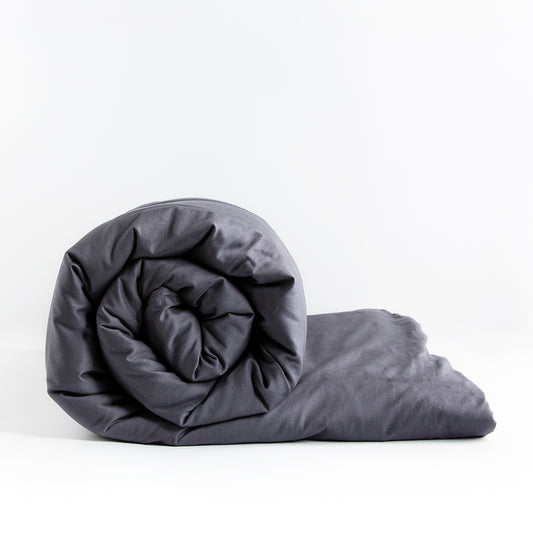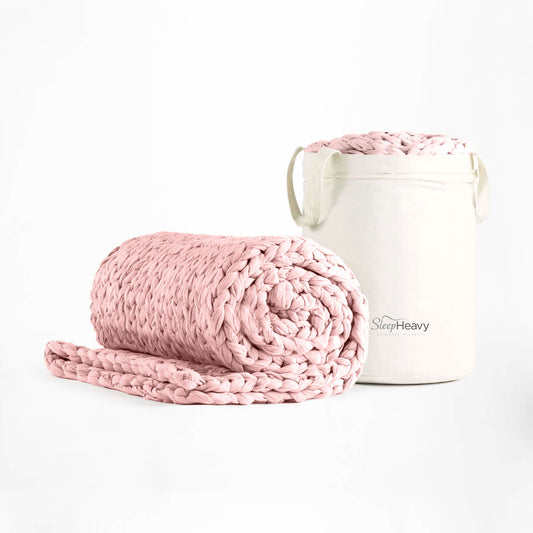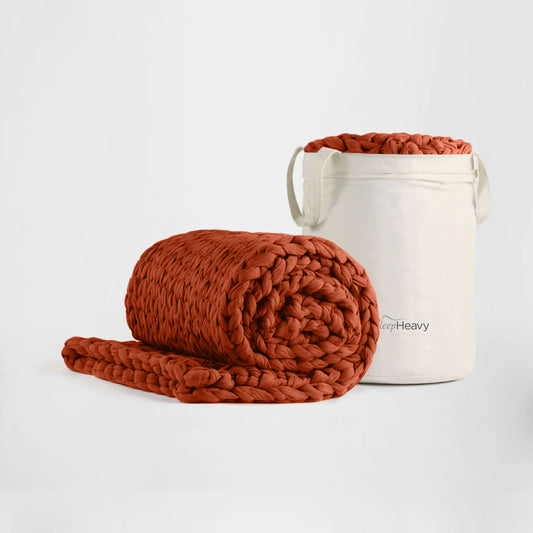Attention deficit hyperactivity disorder (ADHD) is a neurodevelopmental disorder characterised by symptoms such as inattention, hyperactivity, and impulsivity. For individuals living with ADHD, navigating daily tasks and responsibilities can often feel like an uphill battle, with distractions lurking around every corner. However, amidst the challenges of managing ADHD, a simple yet effective solution has emerged: the weighted blanket. These therapeutic blankets offer a source of comfort and sensory regulation, providing individuals with ADHD a means to find calmness and focus in a world filled with distractions. Let's explore the benefits of using weighted blankets for ADHD management and examine the evidence supporting their efficacy.
Weighted blankets are designed to apply deep pressure evenly across the body, creating a sensation akin to being hugged or swaddled. This deep pressure stimulation has been shown to have a calming effect on the nervous system, promoting relaxation and reducing sensory overload. For individuals with ADHD, who often struggle with sensory processing issues and difficulty regulating their emotions, the gentle pressure provided by weighted blankets can offer a sense of security and stability, helping to soothe restless minds and bodies.
One of the primary benefits of weighted blankets for individuals with ADHD is the ability to improve sensory integration and modulation. Research suggests that individuals with ADHD may have difficulty processing sensory information efficiently, leading to sensory seeking or sensory avoiding behaviours. Weighted blankets provide proprioceptive input, which helps individuals better understand and regulate their body's position and movements in space. By promoting sensory awareness and organisation, weighted blankets can help individuals with ADHD feel more grounded and focused, reducing the likelihood of sensory overload or distractibility.
Moreover, weighted blankets have been shown to promote relaxation and improve sleep quality, which are often compromised in individuals with ADHD. Sleep disturbances, such as insomnia or restless sleep, are common comorbidities of ADHD and can exacerbate existing symptoms. By enhancing the production of serotonin and melatonin—the neurotransmitters responsible for regulating mood and sleep-wake cycles—weighted blankets can help individuals with ADHD achieve deeper and more restorative sleep, leading to improved cognitive function and attention during waking hours.
Several randomised controlled studies have investigated the effects of weighted blankets on ADHD symptoms, providing empirical evidence of their efficacy. For instance, a study published in the Journal of Attention Disorders examined the effects of a weighted blanket on sleep and attention in children with ADHD. The results showed that children who used the weighted blanket experienced significant improvements in sleep duration, sleep latency, and ADHD symptoms compared to those who used a control blanket without added weight.
Another randomised controlled trial, published in the Journal of Medical Internet Research, evaluated the effects of a weighted blanket intervention on daytime behaviour and sleep patterns in adults with ADHD. The study found that participants who used the weighted blanket reported reductions in hyperactivity, impulsivity, and inattention, as well as improvements in sleep quality and duration. These findings suggest that weighted blankets may be a valuable adjunctive therapy for managing ADHD symptoms across the lifespan.
In addition to clinical studies, there is a wealth of anecdotal evidence supporting the benefits of weighted blankets for individuals with ADHD. Many parents, educators, and healthcare professionals have reported observing improvements in attention, focus, and self-regulation in individuals with ADHD who use weighted blankets regularly. These personal testimonials underscore the potential therapeutic value of weighted blankets as a non-pharmacological intervention for ADHD management.
It's important to note that while weighted blankets can be a helpful tool for managing ADHD symptoms, they are not a standalone treatment. A comprehensive treatment plan for ADHD may include a combination of medication, behavioural therapy, and lifestyle modifications tailored to the individual's specific needs. However, for those seeking natural and non-invasive methods of symptom management, weighted blankets offer a promising avenue worth exploring.
The benefits of weighted blankets for individuals with ADHD are supported by both scientific research and anecdotal evidence. By providing deep pressure stimulation and promoting sensory integration, these therapeutic blankets offer a comforting sanctuary amidst the chaos of ADHD symptoms. As awareness of their efficacy continues to grow, weighted blankets are poised to become an integral component of holistic approaches to ADHD management, empowering individuals to find focus, comfort, and tranquility in their daily lives.
References:
- Gringras, P., Green, D., Wright, B., Rush, C., Sparrowhawk, M., & Pratt, K. (2014). Weighted Blankets and Sleep in Autistic Children—A Randomized Controlled Trial. Pediatrics, 134(2), 298-306.
- Zaki, N. F. M., Spence, D. W., BaHammam, A. S., & Pandi-Perumal, S. R. (2018). Efficacy of Weighted Blankets for Improving Sleep Quality in Insomnia Patients. Journal of Clinical Sleep Medicine, 14(2), 337-339.
- Fuermaier, A. B., Tucha, L., Koerts, J., van Heuvelen, M. J., van der Zee, E. A., Lange, K. W., & Tucha, O. (2015). Good Vibrations—Effects of Whole Body Vibration on Attention in Healthy Individuals and Individuals with ADHD. PloS one, 10(12), e0142728.

